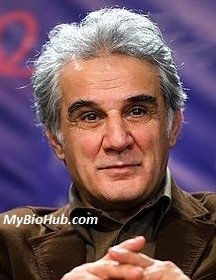Mehdi Hashemi was born in the year 1946 and died on 28 September 1987. Before his death he was an Iranian Shi’a cleric who was defrocked by the Special Clerical Court. After the 1979 Iranian Revolution, he became a senior official in the Islamic Revolutionary Guards; he was executed by the Islamic Republic in its first decade. Officially he was guilty of sedition, murder, and related charges, but others suspect his true crime was opposition to the regime’s secret dealings with the United States.
He first became known to the Iranian public during the closing days of the Pahlavi dynasty in 1977, when SAVAK arrested him for the vigilante murder of “prostitutes, homosexuals, and drug traffickers”. He was also accused of murdering a conservative cleric who had publicly insulted cleric khomeini, the Grand Ayatollah – Hashemi was also the brother of Hadi Hashemi, Ayatollah Montazeri’s son-in-law. During this time he was supported by opponents of Shah Mohammad Reza Pahlavi as an innocent victim framed by SAVAK, in an attempt “to tarnish the reputation of the clerical establishment.”
Hashemi opposed the Iranian government’s efforts to obtain scarce weapons and spares for the Iran–Iraq War from the United States and Israel, and provide assistance to the Reagan Administration in releasing US citizens held hostage by Hezbullah in Lebanon. He leaked news of the dealings to the Lebanese newspaper Ash-Shiraa.
The appearance of the story in the newspaper’s 3 November 1986 issue triggered a scandal in both Iran and the United States, as American government policy forbade selling weapons to Iran, and in Iran, America was condemned as “the Great Satan” and Israel as the “Little Satan”.
After Hashemi’s followers kidnapped a Syrian official in Tehran in October 1986, and shortly before the public exposure of the Irangate scandal, the Iranian government announced Hashemi had been arrested for treason along with 40 associates including his brother Hadi Hashemi.
Hashemi was executed in Tehran in September 1987 before his verdict was announced. This was reportedly done to preclude the intervention on Hashemi’s behalf by Montazeri, according to prosecutor Reyshahri.



